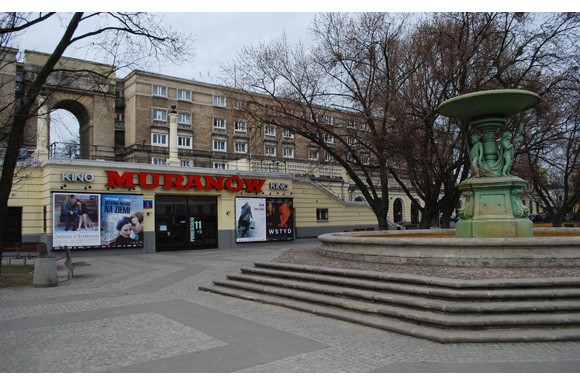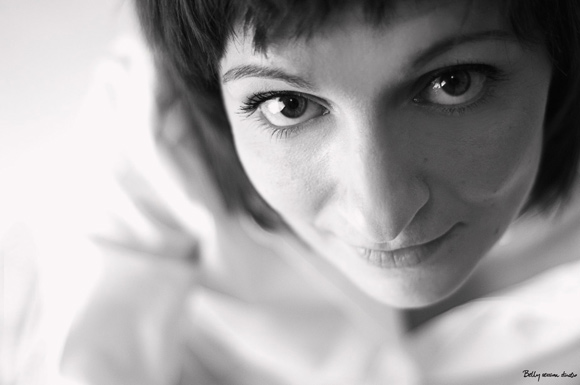 Izabela Wierzbinska: Manager Muranow Cinema
Izabela Wierzbinska: Manager Muranow Cinema
Izabela Wierzbinska was born in 1976 in Lodz and she has been in the cinema business for 12 years.She has worked at Muranow Cinema since 2009 and become manager of this historic central Warsaw cinema in 2011.Wierzbinska has been engaged in various film events and festivals. She was the director of the International Animated Film Festival ReAnimacja from 2004 to 2009. She is also involved in cooperation with T-Mobile New Horizons Festival and Plus Camerimage Festival. From 2008 to 2010 she was an expert of the Polish Film Institute and since 2010 the member of the board of ASIFA.
What is the biggest challenge of running a cinema such as yours?
There are a few things that I would call a challenge. First of all, it is keeping up the high level of the films we present and the diversity of our repertoire. Muranow has received awards from Europa Cinemas and from the Polish Film Institute as the best cinema in Poland for its programming. It is very important to me to maintain this. Muranow has only two screens, and this is also challenging for me to organise a perfect schedule in just two rooms. I very often wish we had at least two more halls. For me the diversity and the quality of the programming, are equally important. The other important thing is to have as good a technical level as possible.
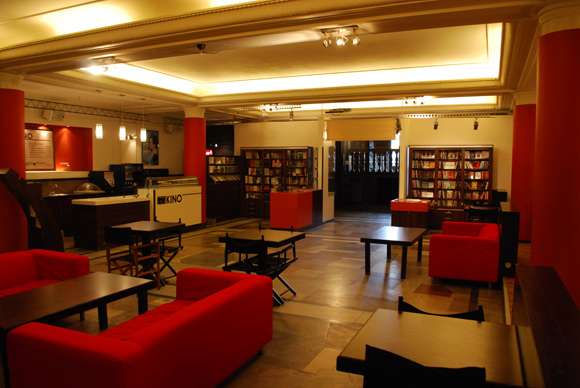
Muranow belongs to Gutek Film distribution company, so we screen our films, chosen at film festivals etc. However, from time to time we screen also films distributed by other companies such as documentaries and feature films. It is always an ambitious repertoire, though. We screen mostly European films, but also American, Asian, and Latin American ones. We are always thinking about diversity and our viewers’ taste. We know they are looking for good, ambitious and brave movies in our cinema and that they can find them here.
Muranow is open for film festivals and special screenings, which are brought especially to our cinema. All this makes us one of the most interesting cinemas in Poland.
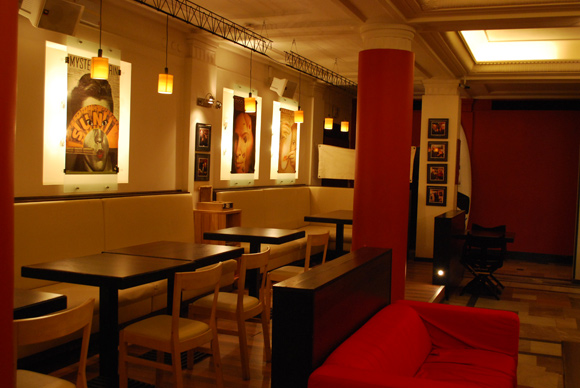
It is very important to us to diversify our programme. Our regular repertoire is a clue, but thanks to the festivals, events and special screenings we can offer to our viewers many different opportunities. There is something for everyone. It is important to us to be a place where many events are happening, and there is always something interesting in the programme. And our viewers appreciate that.
What is role of Europa Cinemas for cinemas such as yours and why is it important?
Being a member of Europa Cinemas network is prestigious. It was a great honour for us to be one of the places where 14th Annual Europa Cinemas Conference was held.
Muranow, as a member of the EC, is recognized as a valuable cinema by international film distributors, producers and film festivals.
We are very proud of the two prizes given by Europa Cinemas. First in 2004 for the Best Cinema of the Year and the second one for Roman Gutek, the owner of the cinema and of Gutek Film, for the Entrepreneur of The Year 2011.
And secondly, the financial support that we receive from the network is very important for our well-being.
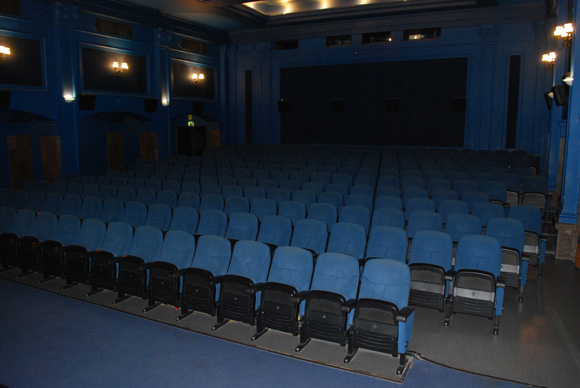
I think we are one of the most important cultural institutions in Warsaw.
We cooperate with various institutions, not only connected with culture. We are the cinema where numerous events take place. We have a very diverse audience – students, seniors, people under 30, which I think is our main audience. We bring a cinematic offer to small kids and for parents with small babies. We have viewers that return to the cinema again and again, and thanks to them we feel a little bit like a family. It is very important to us to see that our audience feels good in the cinema, that they are coming back, that they are interested in our programme.
How does the cinema fulfill its role of cultural diversity – maybe you can give some examples such as programming of European films, films from countries outside MEDIA such as Asia, Latin American and in the Mediterranean region?
It would be very difficult for me to name all the countries from which we have presented films in our cinema. We regularly screen Spanish and Latin American cinema, and also Finnish, French, Jewish, Asian (Five Flavours Film Festival). This year, for the first time, we will present Italian cinema. We are open to all cinematographies of the world. It is important to us that screenings are accompanied by guests – directors, actors, from all over the world.
Last year we successfully presented films from Lebanon. There were guests and very interesting discussions with the audience.
Can you say something about your work with YOUNG Audiences?
We work with young audiences of various ages. We run a film academy for primary and secondary schools. This is the programme created by New Horizons Association that it also operates in a few others cities in Poland. Each edition of our young audience project is open for students of all ages (in four categories: 7-10, 11-13, 14-16, and 17-19 years old). All age categories have a three-year autonomous programme. The programme is related to the school curriculum. Pupils take part in it during their school hours. Each group has nine meetings every school year. During the film lessons we present artistic films not only from Poland, but also from the whole Europe. We try to introduce our students to unknown artists and cinematography.
However, we also organise other events ourselves. We screen kid's films on Saturday mornings, which are followed by workshops. By working with youngsters and ending with students, we try to develop new audiences, from early age.
What about the upcoming digitalisation of cinemas?? How will it affect your work and you cinema?
Digitalisation is the future and we are aware how important it is. But I think Muranow is still quite far from digitalization because of the cost of digitalisation. But of course we are thinking about it, because it would allow us to diversify our programme and increase our possibilities. I think, however, that the 35 mm projectors will still be used for a long time. And in fact I would be very happy about that because for me, as for a traditionalist, the 35 mm print is where the magic of the cinema resides.

